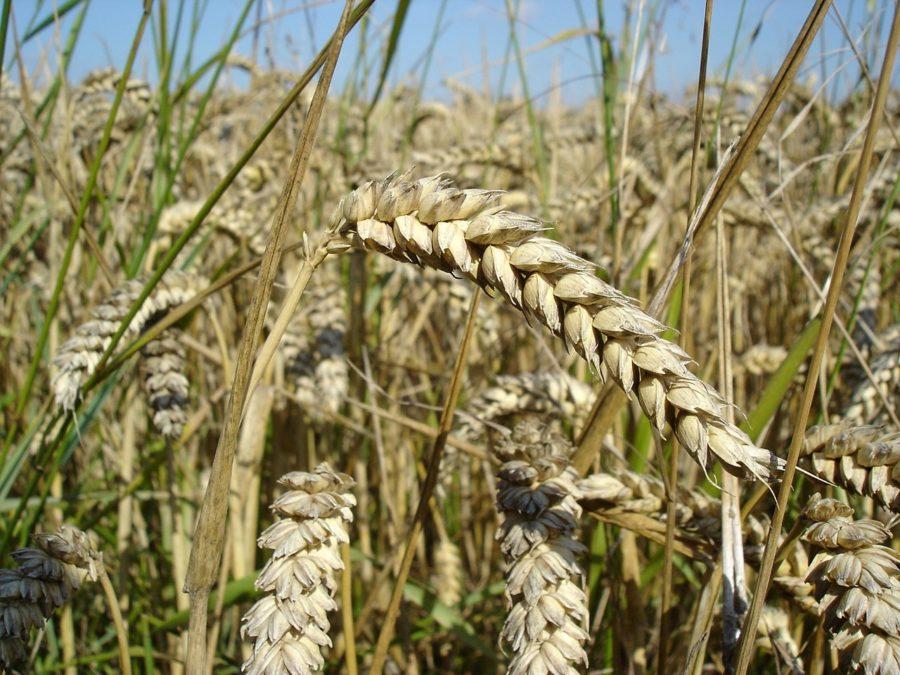Creating a food system where everyone wins with Bob Quinn
April 10, 2019
Author Bob Quinn and co-author Liz Carlisle spoke about creating a food system where everyone wins in regards to their new book, “Grain by Grain: A Quest to Revive Ancient Wheat, Rural Jobs, and Healthy Foods” on Wednesday at Curtiss Hall.
Quinn is the founder of Kamut International and has 32 years of experience in exploring alternatives to industrial agriculture and food production in the United States.
Carlisle is a lecturer in the school of earth, energy and environmental sciences at Standford University where she teaches courses on food and agriculture, sustainability transition and environmental communication.
Carlisle worked for Sen. Jon Tester in Washington D.C. and was asked a question that would eventually lead her to Bob Quinn.
“I was asked about the wind energy in Montana and I approached my mentor Matt about it,” Carlisle said. “He excitingly told me I needed to know Bob Quinn and I learned that he was a leading organic farmer.”
Ten years later, Quinn approached her at a farm tour in Montana about writing a book.
Quinn was raised on a wheat and cattle ranch in north central Montana and he was raised on thinking wheat was the staff of life. Today, 20 percent of people now don’t even eat wheat due to sensitivities and Quinn said he wanted to know what was going on.
“The problem with wheat sensitivities sits on a three-legged stool and they’re all broke,” Quinn said. “The legs are production, processing and seeds.”
Quinn went to college for a total of 10 years, eventually deciding to come back to the farm. To provide for two families, he searched for a niche market and began Montana Flour & Grains where they sold wheat by the truckload to California.
“My customer called me and requested organic grain,” Quinn said. “I said yes but didn’t know an organic farmer or believe in it.”
After attending an organic group meeting, Quinn was astounded by the discussion about rotations in weed cycles and the feeling of a field under a footstep. He never heard anyone talk like this and he decided to do his own experiment.
“I had 20 acres of alfalfa turned under and a separate field with chemicals,” Quinn said. “At harvest, I found that yields were identical but the organic field lowered input costs, increased crop value and increased agronomic and economic viability. We ended up with 25 percent of our acres directly converted to organic.”
After 30 years of research, Quinn learned that the principles of regeneration of organic systems are built upon diversity, soil regeneration and feeding the soil and not the plants.
“The closer we can mimic nature, the closer we can come to a regenerative, sustainable organic system and this is the goal,” Quinn said.
After explaining the importance of providing crop rotation, he discussed his belief that we are no longer growing commodity crops, instead, we are growing food.
“My family ended up growing ancient grain and now we have over 3,500 products,” Quinn said.
This ancient grain is more than just your average wheat. Medical benefits were found in the grain such as anti-inflammatory properties, lower cholesterol and overall a better feeling after eating.
“Eventually I trademarked Kamut Khorasan, organically grown, 100 percent ancient Khorasan wheat with claims supported by research,” Quinn said.
To change the future of the food system, the food system should change from high industrial to regenerative organic, making healthier soils and plants. The high cost of cheap food needs to be addressed to ensure farmers are not going broke. As individuals, put one more organic item in your grocery basket and talk with farmers about the future.
“We are producers and co-producers, we’re in this together,” Quinn said. “We need to create a food system where everyone wins.”
















